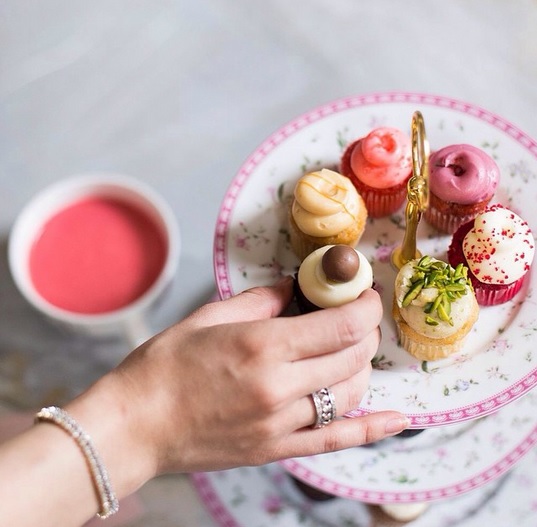
By Sania Aziz Rahman
In a country where women are still forbidden to drive, can’t travel alone and need a male guardian’s permission to work or assistance to launch a business, social media has proven to be a powerful tool for more than just communication.
In Saudi Arabia, roughly 3 million Saudis between the age of 18-34 log on to some form of social media every day. Instagram, however, has proven to be the country’s favorite online platform when it comes to creating and launching a new business – as well as shopping.
Created in 2010, Instagram has more than 300 million active users posting 7 million photos and video a day. Rather than staying home and waiting for a job, many Saudi women are looking to bypass the red tape and restrictions that come with setting up a formal business and create their own jobs and services, from clothes and cosmetics to delicious foodie goodies and catering.
According to Bloomberg Business, “they are part of an informal economy, and aren’t counted in the 48 percent growth in the number of employed Saudi women to almost 806,000 between 2010 and 2014.”
“Social media has provided a venue for women who undergo some social restrictions or prefer not to work or deal with men,” said Khalid AlKhudair, founder and CEO of Glowork, a Saudi startup that aims to help women find jobs and opportunities in the Kingdom. “The only obstacle they might face is the marketing aspect.”
#InstaEmpowerment
Instagram has definitely given women autonomy over handling their own affairs.
The simple photo-sharing site allows anyone to create an account easily, allowing women to bypass the conservative country’s guardianship laws to create their own Instabusiness with just a smartphone or computer and an internet connection. The potential of reaching out and interacting with a large number of consumers directly at little to no cost on Instagram has also proven to be a winning business option for small businesses and startups in the region.
Besides the obvious financial benefits, the advantage of creating and engaging with new network connections beyond the buy-sell interaction is what makes the online entrepreneurial venture worth it for many Saudi businesswomen.
Maha Taibah, an advisor at the Ministry of Labor says the informal Instagram business sector is growing so fast that the government is still figuring out how to factor in their earnings and numbers into the country’s GDP.
Sarah Al Dabbagh, the founder of Lace Events, Saudi-based event planning business, says it wasn’t until she launched her own account on the popular platform that she saw her company’s popularity soar with it. Currently sporting more than 78,000 followers, Al Dabbagh has now become a “pseudo-Saudi Martha Stewart” and won the “Best Saudi Business Woman” award by Sayidity magazine — one of the MENA region’s leading women’s publications.
“Social media is one of the most important tools to reach customers. Women maybe use it because of the high cost of transportation or the difficulty to go out sometimes, which makes it easier to work from home,” said Rasha Saifuddin, head of the marketing department at Hype, a Digital Media Services company in Jeddah.
Saudi photographer and artist Ahlam Alnajdi also found success on Instagram by creating beautiful, life-like clay sculptures of food, cakes and pastries that look good enough to eat. She currently has one 3.7 million followers – one of the biggest followings on Instagram in the Arab World – by launching her own business, earns a decent living through paid advertisements and has written two books on her craft so far.
One of the biggest Instagram success stories in the Kingdom, Sugar Sprinkles initially started out as a family-run site that sold deliciously beautiful desserts on the photo-sharing platform for two years. Since then, the business has expanded from online sales to shopping malls and 15 outlets in Riyadh due to the products’ astounding popularity.
Financial independence as a tool for societal integration
Instagram has been a popular business agent in Saudi Arabia for a couple of years – giving women a chance to earn money and prove their entrepreneurship skills.
In light of Saudi Arabia’s recent law that allows women to vote and run for office in the upcoming nation-wide municipal elections, perhaps Saudi society has witnessed the entrepreneurial spirit, potential and success of Saudi businesswomen and are ready to accept women as successful law-makers, at least at the lowest level.
“First it was cupcakes, now it’s getting into interesting stuff,” said Taibah. “It’s their way of expressing themselves…I think the main idea is that women are starting to voice that they are much more productive than in the past.”
Running her own barbeque catering business, BBQ-Time, with her sisters, Nouf al-Mazrou says she decided to launch her business because she wanted to be her own boss.
“I’m free,” says the single mom, as she wraps up a grilled burger layered with her own homemade sauce at a convention of Instagram businesses in Riyadh. “And no man has to take responsibility for me.”



















Comments